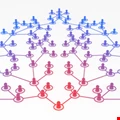Infosecurity News
Online gamers targeted by phishers
Researchers have discovered new phishing campaigns targeted against online gamers: Trend Micro citing WOW: Mists of Pandaria, and GFI Software citing Star Wars: The Old Republic.
Researchers criticize Tridium for being 'unresponsive' to security issues
Billy Rios and Terry McCorkle, the researchers who worked with the Washington Post to uncover security gaps in Tridium’s Niagara Framework, said that Tridium has been “unresponsive” to fixing the flaws.
Cisco buys Virtuata, a California-based virtual security firm
Cisco announced yesterday that it had completed the acquisition of a little known privately held company that develops security for cloud and virtualized environments.
Pulaski Bank sues former employees for taking company data to new employers
First State Bank in Kansas opened two new mortgage offices, and recruited staff from Pulaski Bank – but Pulaski claims that staff wasn’t all they took.

FBI teams with DARPA, George Mason to fuzz test Android apps
The FBI is teaming with the Defense Advanced Research Projects Agency (DARPA) and George Mason University to perform fuzz testing on Android mobile applications.
German state buys CD of Swiss bank customers for €3.5m
Authorities in North Rhine-Westphalia, the most populous of Germany’s 16 federal states, have purchased a CD containing the private Swiss bank details of about 1000 wealthy German citizens.
50% Job leavers steal confidential company data
New details from Iron Mountain show the extent to which employees leaving employment will take confidential company data with them when they go.
FTC urges Congress to renew cross-border online scam power
A US Federal Trade Commission (FTC) official urged Congress on Thursday to reauthorize the Safe Web Act, which gives the agency power to combat cross-border online scammers.
UK ISP says Digital Economy Act is past its sell-by date
Last month Ofcom finally published its draft code for the application of the Digital Economy Act. Now UK ISP Entanet asks, “is the DEA old before its time?”
Vulnerabilities in Niagara Framework exposed
Tridium’s Niagara Framework enables millions of devices to be controlled centrally via the internet, but it also opens up vulnerabilities to attacks from hackers, according to a story by the Washington Post.
Stuxnet leak prompts US House to consider prosecution of journalists
Prompted in part by newspaper stories about the US role in the Stuxnet worm, House lawmakers are considering amending the Espionage Act to enable the prosecution of journalists who disclose sensitive national security information.
Single massive spam campaigns replace high volume spam runs
Over the last few months researchers at Trend Micro began to investigate a rise in the number of high volume spam runs – and concluded that they weren’t individual spam runs at all, but part of a single, massive spam campaign.
Mobile carriers provided more than one million phone records to police in 2011
Last year, US mobile carriers responded to 1.3 million requests from law enforcement agencies for consumers’ cell phone records, according to a report released by Rep. Edward Markey (D-Mass.).
Man in the Browser (MITB) becomes Man in the Mobile (MITMO)
MITB malware, personified by Zeus and SpyEye, has long been the bane of desktop online banking. Now Trusteer reports that MITB has migrated to Android; and calls it Man in the Mobile.

Search for patient zero: uncovering malware infection at the source
Comparing the malware infection of a network to the outbreak of a virus among a human population, Sourcefire’s Alfred Huger stressed that the key to fighting the infection is to find patient zero, the carrier of the virus.
Cyberoam fixes security hole caused by use of default certificates
Network security firm Cyberoam took action Monday to fix a flaw in its deep packet inspection (DPI) devices caused by the use of default CA certificates, a vulnerability that was identified by Tor Project researchers on their website.
DarkComet RAT, used by Syrian regime to spy on activists, shut down
The website of the DarkComet remote administration tool (RAT), which was used to spy on opposition groups by the Syrian regime, has closed down permanently.

Evolve or perish: Chinese professor develops evolutionary cryptography
A professor in China has developed a new cryptosystem, called evolutionary cryptography, that draws on evolution theory in biology to construct more secure encryption.

Venture capital group pumps $22.4 million into SIEM provider AlienVault
AlienVault, a San Mateo, Calif.-based security information and event management (SIEM) provider, has received $22.4 million in funding from a venture capital group led by Kleiner Perkins Caufield & Byers (KPCB) and Sigma.
High tech car thief jailed
The high tech theft of motor vehicles is likely to rise as their computer content increases. In an early case, Alan Watkins was last week jailed for car theft that involved hacking, GPS tracking and motor car identity theft.



